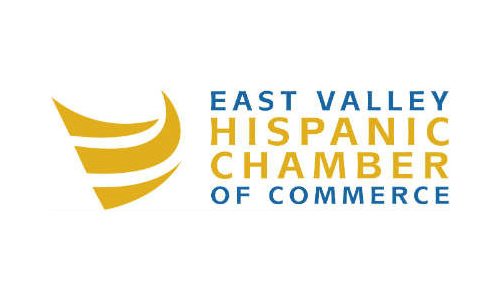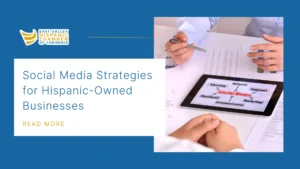- Certification as a minority-owned business offers access to government contracts, corporate supplier diversity programs, and valuable growth resources.
- Different types of certifications, federal (SBA 8(a)), state/local, and corporate (NMSDC), serve unique goals depending on target markets.
- Strategic tips like staying organized, promoting certification status, and building long-term relationships help maximize the benefits post-certification.
If you’re a minority business owner looking to level the playing field and unlock real growth opportunities, certification can be your competitive edge. This isn’t just a bureaucratic step, it’s a smart strategy that opens doors to government contracts, corporate partnerships, and a network of support tailored to your success.
Let us walk you through everything you need to know about getting certified as a minority-owned business and how to fully leverage your certification once you do.
Why Minority-Owned Business Certification Matters
Certification validates that your business is owned and controlled by individuals from minority groups. But more than that, it acts as a passport into a world of opportunity designed to support equity in entrepreneurship. Here’s why it matters:
Access to Lucrative Contracts
Many government agencies and major corporations have supplier diversity programs with set-aside contracts specifically for minority-owned businesses. Certification makes your business eligible to compete.
Strategic Networking Opportunities
Certifying organizations host exclusive networking events where you can meet decision-makers, connect with potential collaborators, and learn from peers.
Marketplace Visibility
Certified businesses are listed in supplier databases used by corporations and public agencies actively seeking diverse suppliers.
Growth Support
Certifying bodies often provide workshops, mentorship programs, business consulting, and funding resources to support your long-term development.
Understanding Certification Eligibility
Before applying, it’s important to understand if your business qualifies. Most certifying bodies share similar baseline requirements.
Core Eligibility Criteria
To meet the core eligibility criteria for minority-owned business certification, at least 51% of the business must be owned and controlled by individuals from recognized minority groups. The definition of “minority” typically includes African American, Hispanic American, Asian Pacific American, Asian Indian American, and Native American individuals.
Additionally, all minority owners must be U.S. citizens. Some certification programs may also include revenue or employee size limitations to ensure that the benefits are directed toward small to mid-sized businesses.
Certification Types and Their Benefits
When it comes to certification, selecting the right path depends on your business goals and target market. Below are the main types of certifications, each with its own audience, certifying body, and key advantages.
Federal Certification
If your business is aiming to secure federal government contracts, pursuing certification through the U.S. Small Business Administration (SBA) is a strategic move. The SBA offers several valuable programs. These include access to set-aside contracts, the 8(a) Business Development Program, and mentorship opportunities.
These programs are specifically designed to help minority-owned businesses grow and compete effectively in the federal marketplace.
State and Local Certification
For businesses targeting contracts with state or municipal governments, certification through state or local agencies is ideal. These certifications open doors to regional contracting opportunities and connect your business to local economic development programs. They can be particularly beneficial for smaller businesses focused on building relationships within their community or state.
Corporate (MBE) Certification
If your goal is to become a supplier for large corporations, the Minority Business Enterprise (MBE) certification through the National Minority Supplier Development Council (NMSDC) is key.
This certification provides access to corporate supplier diversity programs, as well as exclusive networking opportunities with Fortune 500 companies and other major players committed to working with diverse suppliers.
Step-by-Step: How to Get Certified
Here’s a step-by-step roadmap to guide your journey from application to approval:
Step 1: Choose Your Certification Path
Decide which certification(s) align with your goals. Do you want to win federal contracts? Grow regionally? Become part of a corporate supply chain?
Do your research on eligibility requirements and benefits offered by:
- The SBA 8(a) Business Development Program
- Your state’s minority business enterprise (MBE) office
- The National Minority Supplier Development Council (NMSDC)
Step 2: Gather Required Documentation
While documentation requirements vary, be prepared to submit:
- Articles of incorporation or partnership agreements
- Business licenses and permits
- Tax returns (personal and business)
- Financial statements
- Resumes of owners
- Proof of U.S. citizenship (passport, birth certificate)
Tip: Keep documents organized in digital folders labeled by category.
Step 3: Submit Your Application
Download or access the application from the certifying body’s website. Fill out the form clearly, double-checking that all information is accurate.
Step 4: Verification Process
Most certifying organizations will conduct a site visit or interview to verify ownership, control, and operations. Be prepared to:
- Discuss your role and authority in decision-making
- Provide physical access to your business premises
- Answer questions about your operations and history
Step 5: Wait for the Decision
Processing times vary widely. Some agencies may take 30 to 90 days, while others could take longer. Use this time to begin building your strategy for how you’ll use the certification.
NMSDC Certification (MBE)

The National Minority Supplier Development Council (NMSDC) is one of the most prestigious certifying bodies for minority-owned businesses aiming to break into the corporate supply chain. It’s particularly valuable for those looking to work with large companies that prioritize supplier diversity.
What to Expect:
The certification process with NMSDC is known for being thorough. Applicants must undergo a rigorous application process that includes detailed documentation and an on-site visit to verify business ownership and operations. Certification is handled regionally, so your application will be processed by one of NMSDC’s regional affiliate councils.
Once certified, your business is added to NMSDC’s national database, which is used by hundreds of major U.S. corporations actively seeking to work with certified minority vendors. This can open up significant opportunities in the private sector.
Pro Tip: Take full advantage of NMSDC’s events and matchmaker programs. These events provide rare, direct access to procurement leaders and decision-makers from Fortune 500 companies.
SBA 8(a) Business Development Program
For socially and economically disadvantaged entrepreneurs, the SBA 8(a) Business Development Program offers a powerful pathway into the federal contracting world. This program provides resources and mentorship to help businesses grow sustainably over time.
Unique Benefits:
One of the most attractive features of the 8(a) program is access to set-aside federal contracts, opportunities that are reserved exclusively for certified participants. In addition, businesses receive personalized business development assistance, including mentoring, strategic planning, and technical training.
The 8(a) program lasts for nine years, with the goal of helping participants scale in a way that prepares them for long-term success, even after the program ends.
Qualification Criteria
To qualify for the 8(a) program, applicants must demonstrate both social and economic disadvantage. This includes submitting documentation related to personal net worth, income thresholds, and personal experiences with barriers due to race, ethnicity, or gender.
Strategic Tips for Certification Success
Securing a certification, whether through NMSDC, SBA, or a state agency, requires preparation and persistence. Here are a few strategies that can make the process smoother:
Start Early
Don’t wait until the last minute. The paperwork can be time-consuming, so it’s best to start your application 2–3 months in advance. This gives you time to gather documents, address any gaps, and avoid rushed errors.
Stay Organized
Set up a digital filing system using cloud storage to manage everything from submitted forms to email confirmations and receipts. Keeping your documentation in one place helps avoid delays and confusion later on.
Seek Local Help
Many local organizations provide support for small business certifications. For example, the East Valley Hispanic Chamber of Commerce (EVHCC) offers workshops, mentoring, and one-on-one guidance to help business owners navigate the certification process.
Follow Up
After submitting your application, don’t assume everything is moving along. Make it a habit to check your application status regularly and follow up with certifying bodies if needed.
Be Accurate
It might sound obvious, but accuracy is crucial. Double-check every form, date, and document. Submitting incomplete or incorrect information is one of the fastest ways to get disqualified or face long delays.
Leveraging Certification for Growth
Getting certified is only the first step. The real value comes from how you use that certification to grow your network, gain visibility, and secure contracts.
Promote Your Certified Status
Your certification is a badge of credibility, so make sure people see it. Add the certification logo to your website, email signature, and marketing materials. Mention it in proposals, capability statements, and pitch decks. Don’t forget to share your achievement on social media to build awareness and trust.
Attend Supplier Diversity Events
Events hosted by certifying organizations are where many real opportunities begin. Be sure to participate in expos, matchmaking sessions, and trade shows. These events allow you to meet procurement representatives who are actively seeking diverse suppliers, often with open contract opportunities.
Target Supplier Diversity Programs
Research corporations with well-established supplier diversity programs. These companies are not only looking for minority-owned vendors, but they also often have measurable diversity goals that your certification helps them fulfill. Leverage your local chamber of commerce or minority business organization to help make introductions and warm up leads.
Continue Building Relationships
A certification opens the door, but building strong, lasting partnerships is what leads to real growth. Follow up with corporate contacts after meetings, and keep the relationship alive. Share case studies, testimonials, or recent wins that demonstrate your company’s value. Stay active and consistent in your industry presence, both online and in-person.
Avoiding Common Pitfalls
Even well-intentioned applicants can run into obstacles. Here are the most common mistakes to avoid:
Incomplete Applications
Missing documents or incomplete answers are a top reason for delays. Use the checklist provided by the certifying body.
Misrepresentation of Ownership or Control
Certifiers will dig deep. Make sure the business is truly operated and controlled by the minority owner(s).
Not Leveraging Certification
Certification won’t bring opportunities if you don’t use it. Promote your status, network, and pursue leads actively.
Ignoring Recertification Requirements
Many certifications require annual updates or periodic renewal. Set reminders and keep your documents up to date.
The Future of Minority-Owned Businesses
As supplier diversity becomes a growing priority for both public and private sectors, minority-owned businesses have more opportunities than ever, especially those that embrace digital transformation and innovation.
Keys to Staying Competitive
It’s important to keep things simple and efficient. One way to do this is by using tools like digital marketing, CRMs, and project management software to make everyday tasks easier. It’s also helpful to stay open to new ideas and offer products or services that solve problems people are facing.
Working together with other small businesses and community leaders can open doors for new opportunities, too. And don’t forget to ask for advice from experienced entrepreneurs; learning from their mistakes can save you a lot of time and effort.
The East Valley Hispanic Chamber of Commerce: Your Partner for Progress
Certification is a powerful tool, and the East Valley Hispanic Chamber of Commerce (EVHCC) is committed to helping you use it to transform your business. We provide:
EVHCC Member Benefits
- Exclusive Networking Opportunities
- Certification Guidance & Workshops
- Small Business Support Resources
- Digital Marketing & Sponsorship Visibility
Ready to gain a competitive edge and grow your business with purpose?
Join East Valley Hispanic Chamber of Commerce today and get connected with the tools, people, and opportunities you need to succeed. Let’s build a stronger, more inclusive future together.





